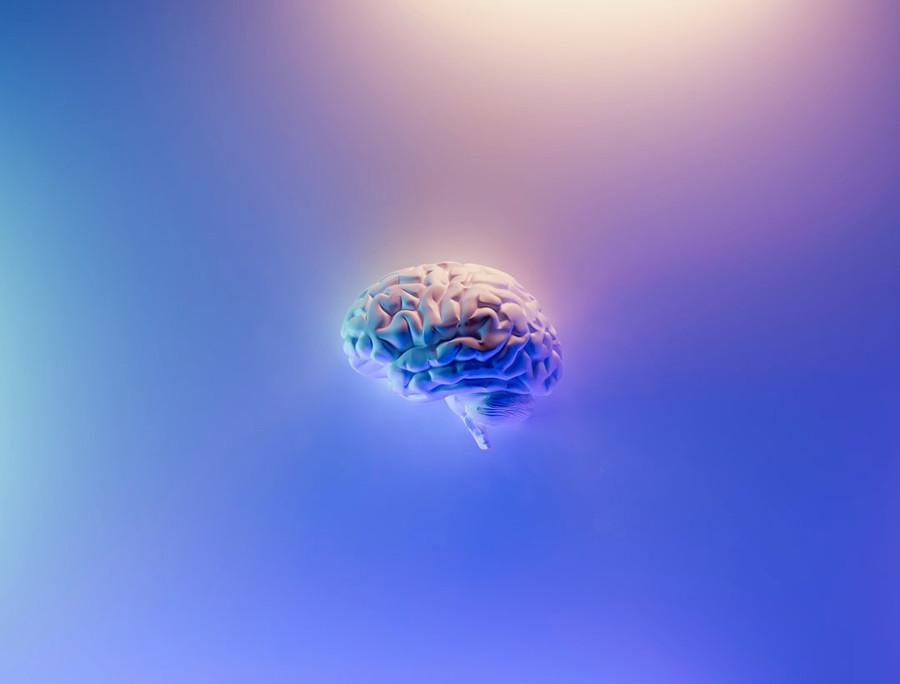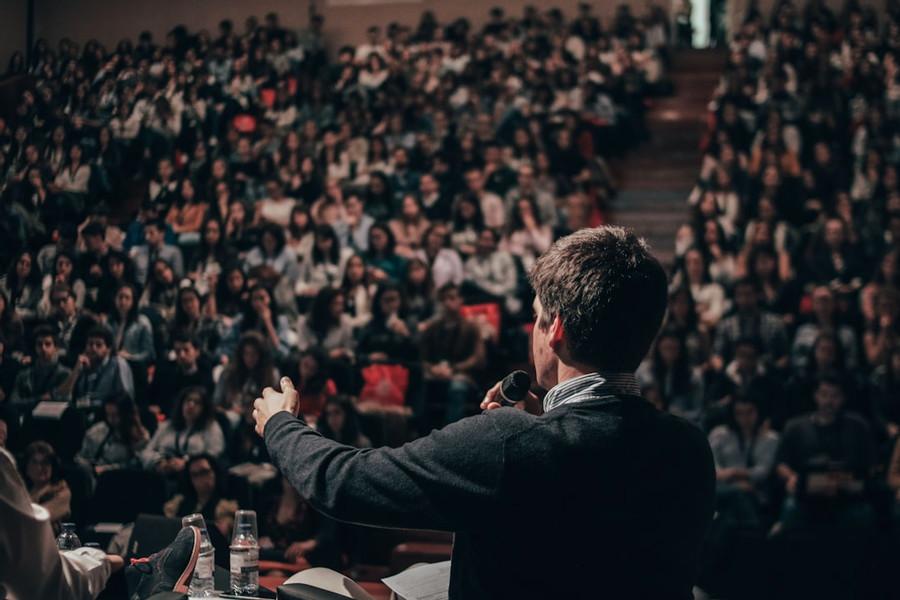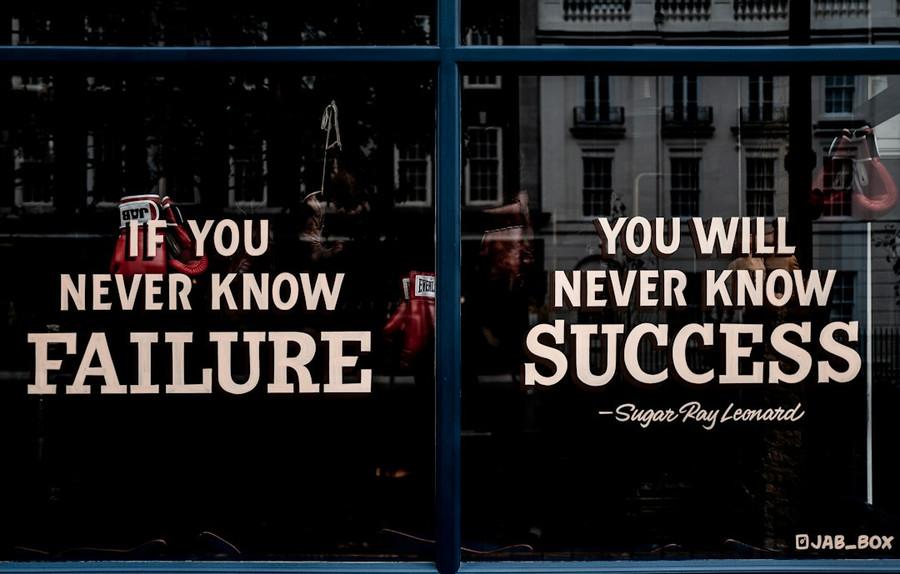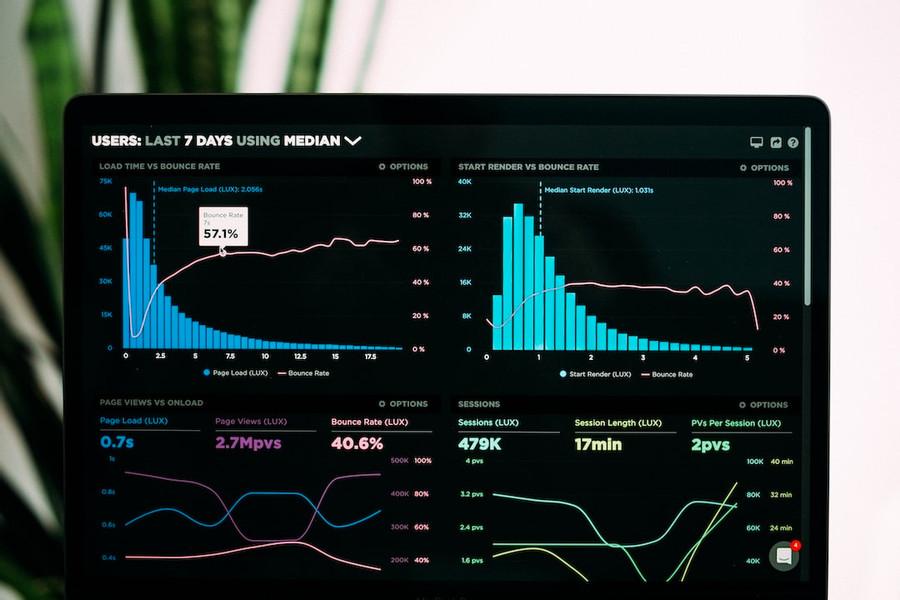35 Scientific Concepts That Will Help You Understand The World
Curated from: m.dailygood.org
Ideas, facts & insights covering these topics:
36 ideas
·2.4K reads
6
Explore the World's Best Ideas
Join today and uncover 100+ curated journeys from 50+ topics. Unlock access to our mobile app with extensive features.
Background
In order to sharpen our reasoning skills, we must have a good grasp of our own cognitive biases, as well as the basic laws of the universe.
But in a dynamic world, new laws are constantly emerging.
The editors over at Edge.org asked some of the most influential thinkers in the world — including neuroscientists, physicists and mathematicians — what they believe are the most important scientific concepts of the modern era.
We've highlighted 35 of the concepts here (please check the website for credits to authors whose essay highlights the theory)
47
221 reads
Cognitive humility
Decades of cognitive research shows that "our minds are finite and far from noble. Knowing their limits can help us become better reasoners..."
Perhaps the most dire consequence is that human beings tend to be better at remembering evidence consistent with their beliefs."
48
217 reads
Cognitive load
Our brains can only hold so much information at once. When there's too much "information overload," we tend to get distracted easily and not retain what we're learning.
"Working memory is what brain scientists call the short-term store of information where we hold the contents of our consciousness at any given moment — all the impressions and thoughts that flow into our mind as we go through the day."
49
171 reads
Constraint satisfaction
When presented with too many choices — no matter how beautiful or beneficial — it can be overwhelming, and we are paralyzed by indecision.
That's why having constraints, or any sort of limits, is beneficial and leads to solutions.
In fact, "much creativity emerges from constraint satisfaction...". Einstein had one of his major breakthroughs when he realized that "time need not pass at a constant rate."
51
154 reads
Contingent superorganisms
"Biologists have joined with social scientists to form an altruism debunkery society" — pushing the belief that every altruistic act is done in self-interest.
But a new concept, "contingent superorganisms," says that we live life on a few different hierarchies. The idea is that when you reach a higher level, you are willing to put the success of the group or a higher cause above one's own. This is what drives militaries, fire departments, and rock bands.
49
121 reads
Copernican principle
The Copernican Principal is the idea that we are not special — that the universe is much larger, and we have a rather insignificant role.
"The paradox of the Copernican Principle is that by properly understanding our place, even if it be humbling, we can only then truly understand our particular circumstances. And when we do, we don't seem so insignificant after all."
48
125 reads
Cultural attractor
We are attracted to ideas and concepts that are easy to accept or digest.
For example, round numbers are cultural attractors — they're "easier to remember and provide better symbols for magnitudes." Efficiency is another powerful cultural attractor.
But just because we are drawn to specific concepts, does not mean that they are the best ones to apply to any given situation.
47
124 reads
Cumulative error
When information travels through multiple channels, it's easy for some elements of the message to get distorted — by biases, or simple human error.
The effect of the spread of misinformation is "cumulative error." Living in an age where information can travel across the world in nanoseconds, this concept has never been more real or dangerous.
47
99 reads
Cycles
Cycles explain everything — especially, at the basic level: evolution and biology. Cycles can be disrupted. Also watch out to see which cycles are doing all the work.
"All the 'magic' of cognition depends, just as life itself does, on cycles within cycles of re-current, reflexive information-transformation processes, from the biochemical scale within the neuron to the whole brain sleep cycle, waves of cerebral activity and recovery revealed by EEGs."
48
78 reads
Deep time
The belief that there is much more time before us than has already elapsed. This creates a more expansive view of the world and the potential of the universe.
"Our sun is less than halfway through its life. It formed 4.5 billion years ago, but it's got 6 billion more years before the fuel runs out."
46
88 reads
Double-blind control experiment
It's a tool that researchers use to prevent against subconscious bias when performing experiments.
Understanding the need for double-blind experiments would help the rest of the population understand their inherent subjective, everyday biases, and guard against generalization and impress upon people the need for critical thinking.
46
79 reads
Effective theory
"Effective theory is one of the more important notions within science — and outside it.
The idea is to determine what you can actually measure and decide, given the precision and accuracy of your measuring tools, and to find a theory appropriate to those measurable quantities.
46
93 reads
Expanding in-group
As technology makes us more interconnected, there are more cross-overs between groups and populations. For example, there are more intermarriages.
"These effects are potentially beneficial for the improvement of cognitive skills, from two perspectives. We call these the 'expanding in-group' and the 'hybrid vigour' effects."
46
66 reads
Externalities
We all affect each other incidentally, especially in an interconnected world. Externalities are the unintended positive and negative side effects these interactions have.
"Externalities are increasingly important in the present era, when actions in one place potentially affect others half a world away."
46
56 reads
Failure liberates success
"Failure is not something to be avoided but something to be cultivated... It is a sign of weakness and often a stigma that prohibits second chances.
Yet the rise in the West is in many respects due to the rise in tolerating failure. Indeed, many immigrants trained in a failure-intolerant culture may blossom out of stagnancy once moved into a failure-tolerant culture. Failure liberates success."
47
56 reads
Fear of the unknown
Our attachment to the familiar keeps us from taking risks and making real strides and breakthroughs. We often don't accurately assess the risk/benefit ratio; our irrational fears get in the way of real progress.
"If the public could be brought to a greater understanding of how to evaluate the risks inherent in exploring future technology, and the merits of accepting some short-term risk in the interests of overwhelming greater expected long-term benefit, progress in all areas of technology — especially biomedical technology — would be greatly appreciated."
46
50 reads
Fixed-action patterns
Some behaviours we exhibit we blame on instinct. But what we believe to be instinct may, in fact, be learned behaviour over time — or a "fixed-action pattern."
This has many implications, including the fact that, as rational creatures, we can change what we believe to be instinctive.
"Given an understanding of our fixed-action pattern, and those of the individuals with whom we interact we — as humans with cognitive processing powers — could begin to rethink our behaviour patterns."
46
41 reads
Focusing illusion
We often believe that a certain, different set of circumstances would dramatically change our lives. But the truth is, factors like income and health are less indicative of overall happiness.
"The mismatch in the allocation of attention between thinking about a life condition and actually living it is the cause of the focusing illusion."
47
50 reads
Hidden layers
These are the layers of understanding that exist between the external reality and our own perception of the world.
These systems of layers become more interconnected as we develop habits. Learning to ride a bike was hard; but after a while it's like second nature.
"The general concept of hidden layers captures deep aspects of the way minds — whether human, animal, or alien; past, present, or future — do their work."
48
35 reads
Holism
"Holism is colloquially described as 'The whole is greater than the sum of its parts.'
Perhaps the most impressive is that carbon, hydrogen, oxygen, nitrogen, sulfur, phosphorus, iron, and a few other elements, mixed in just the right way, yield life...
There is a kind of awesome synergy between the parts.
Just look at DNA, and other much broader systems, like cities, that operate only if each individual element does its part.
"Holism does not come naturally. It is an appreciation not of the simple but of the complex ."
47
32 reads
Inference to the best explanation
When any single event occurs, there are many possibilities as to the cause of the event.
But the truth often lies in what is the single most reasonable, best explanation for the event.
"Many of our most rancorous scientific debates — say over string theory or the foundations of quantum mechanics — have been... which competing criteria for judging explanations [of] best ought to prevail."
47
40 reads
Kaleidoscopic discovery engine
The greatest insights and inventions are the product of multiple people. It's never just a single person; everyone's standing on someone's shoulders.
"In hindsight we often find that if one scientist did not make a particular discovery, some other individual would have done so within a few months or years of the discovery...
We are reluctant to believe that great discoveries are part of a discovery kaleidoscope and are mirrored in numerous individuals at once."
48
34 reads
Name game
We give names to everything in order to understand the world. But in doing this, we sometimes undermine, or simplify, the true nature of an organism or process. "Naming" keeps us from asking further, deeper questions about the nature of something.
It's also important not to over-associate words, which leads to misunderstanding — for example, "theory [is] a strong idea in science while vague in common discourse."
47
38 reads
Pessimism meta-induction
"Because so many scientific theories from bygone eras have turned out to be wrong, we must assume that most of today's theories will eventually prove incorrect as well ."
Accepting the belief that many of our theories are "fundamentally provisional and quite possibly wrong," we can better listen to and empathize with others' ideas.
48
34 reads
Positive-sum games
In zero-sum games, there's a clear winner and a clear loser. In positive-sum games, "everyone wins."
"In a positive-sum game, a rational, self-interested actor may benefit the other actor with the same choice that benefits himself or herself."
Some competition will always be zero-sum — such as the competition for mates.
47
30 reads
Powers of 10
Much of the world operates in powers of 10. Understanding scaling laws, like Richter scales that measure earthquakes or of "that between the volume of the brain's cortical white matter" — where computing takes place — would give us more perspective on the depth of events, matter, and ourselves.
"The spatial scales are also immense. Our space-time trajectory is a very tiny part of the universe, but we can at least attach powers of 10 to it and put it into perspective."
47
22 reads
Predictive coding
Our expectations — and if they are met or not — greatly influence how we perceive the world, and ultimately, our quality of life.
Predictive coding "concerns the way the brain exploits prediction and anticipation in making sense of incoming signals and using them to guide perception, thought and action."
47
29 reads
Randomness
"Randomness is a fundamental limit to our intuition ; it says that there are processes we can't predict fully. It's a concept that we have a hard time accepting, even though it's an essential part of the way the cosmos works."
But some random events — like random collections of atoms — are so absolute, that we can predict the outcome of that "randomness" with pure certainty.
47
23 reads
Rational unconsciousness
Freud inspired the idea of the irrational subconscious, but many of today's scientists dispute that idea.
Instead they are bridging the conscious and unconscious — and insisting that we operate on both levels, and have an awareness of this connection, more than we think. "Our conscious understanding of probability, for example, is truly awful, in spite of the fact that we unconsciously make subtle probabilistic judgments all the time."
47
20 reads
Self-serving bias
The idea that we perceive ourselves to be better than we are; to claim responsibility for success and blame others for failure .
"In everyday life, more than nine in ten drivers are above-average drivers, or so they presume. In surveys of college faculty, 90 percent or more have rated themselves as superior to their average colleague."
48
24 reads
Shifting baseline syndrome
The belief that what we perceive is what's normal, not taking into account the full extend of the past nor potential for future events.
The syndrome is named after scientist Daniel Pauly, who said that each generation accepts "as a baseline the stock size and species composition that occurred at the beginning of their careers, and uses this to evaluate changes. When the next generation starts its career, the stocks have further declined, but it is the stocks at that time that serve as the new baseline."
Therefore what is "normal" is constantly changing.
48
22 reads
Skeptical empiricism
"Skeptical empiricism, the kind exemplified by the carefully thought-out and tested research in science at its best. It differs from plain empiricism" — which is simply the observation of results of the world around us.
Put more simply, it is important for us to be skeptical about the world around us and not blindly accept what we believe to be "truths."
47
24 reads
Structured serendipity
We overly-attribute breakthroughs to luck. But successful people regularly put themselves in positions — by studying, relentlessly working, pursuing the truth — where they encounter luck .
"We should each invest a few hours a week in reading research that ostensibly has nothing to do with our day jobs, in a setting that has nothing to do with our day jobs, in a setting that has nothing in common with our regular workspaces."
50
24 reads
Subselves and the modular mind
The belief that we have a single self is false. In fact, we have multiple identities, or "subselves."
"Each of us has a set of functional subselves — one dedicated to getting along with our friends, one dedicated to self-protection, one dedicated to winning status, another to finding mates..."
49
23 reads
Umwelt
Umwelt is the idea that we blindly accept the reality of the world around us .
"It would be useful if the concept of the umwelt were embedded in the public lexicon. It neatly captures that idea of limited knowledge, of unobtainable information, of unimagined possibilities."
49
31 reads
Uncalculated risk
"We humans are terrible at dealing with probability. ... Our irrational fears and inclinations are costly ."
We place too great a weight on the possibility of rare, major events occurring to us — for example, the lottery, or a plane crash — but not enough weight into the effects of lesser events.
"Making good decisions requires concentrated mental effort, and if we overdo it, we run the risk of being counterproductive through increased stress and wasted time. So it's best to balance and play, and take healthy risks."
47
27 reads
IDEAS CURATED BY
CURATOR'S NOTE
When I found this article, I didn't expect to not know most of these ideas from school already. These concepts are interesting in the way that they either perfectly describe the world we live in, or puts it in a whole new light- either way, it was enlightening!
“
M 's ideas are part of this journey:
Learn more about communication with this collection
How to showcase your skills and experience
How to answer common interview questions
How to make a good first impression
Related collections
Similar ideas
5 ideas
How Our Brains Organize Abstract Scientific Concepts
discovermagazine.com
9 ideas
Read & Learn
20x Faster
without
deepstash
with
deepstash
with
deepstash
Personalized microlearning
—
100+ Learning Journeys
—
Access to 200,000+ ideas
—
Access to the mobile app
—
Unlimited idea saving
—
—
Unlimited history
—
—
Unlimited listening to ideas
—
—
Downloading & offline access
—
—
Supercharge your mind with one idea per day
Enter your email and spend 1 minute every day to learn something new.
I agree to receive email updates




































